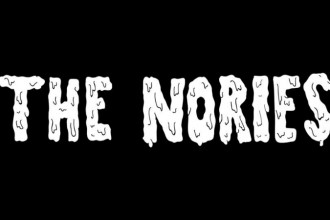i talk to a bunch of people who are really into music and really knowledgeable about it, but who never really got into following which labels put out which artists’ records. that’s a shame because i’ve always found the label that an artist is on can really explain a lot about the records they put out. when i read about an artist i first try to find out their release history, then where they’re from, then what label they’re on. and now, in an era when so many artists are just “from the internet” (the disparate locations of chillwave artists (or that new spooky witch rap genre that pitchfork described a few weeks ago), mean that their “scene” exists more on the internet than it does in a conventional place), the importance of record labels as extramusical signifiers is heightened, relative to where a band is from at least, which is considered pretty important
the label that a record comes out on gives you an idea of the record’s production aesthetic or the quality of the resources and thought behind it, and in a way, that’s crucial to understanding the record itself. for example, you know a record that comes out on True Panther Sounds will probably embody a subversion or ironic-unironic embrace of sunshiney pop and/or tropical rhythms (lemonade, tanlines, delorean, rainbow bridge, girls). Modular records is australian, and their records are almost all Australian psychedelic rock and psychedelic dance punk (wolfmother, tame impala and muscles, cut copy). if that’s your thing, check out their roster for records you might like from bands you might not yet have heard of but play in a style you’re into. underground rap labels like anticon (super left field, often conceptual, unusually difficult rap) and stones throw (also left field, off-kilter rhymes over screwed up soulful beats) have strong label identities too.
labels share resources and producers and contacts, and i’m sure bandmembers sleep on labelmates’ couches and sing backup on labelmates’ records all the time. labels are tiny artistic communities, and if you take the time to understand them as such, you can catch a lot of Best New Musics before Pitchfork calls them that, and, even better, catch the records that pitchfork can’t get to that are your PERSONAL best new musics, like that dignan porch record on captured tracks.
underwater peoples records or woodsist records will sound lo-fi and home produced but not exactly hissy, versus a record that comes out on island or interscope or sony (or any of their affiliates) that’ll sound professional and polished, and, you know, plasticky. if you ever read a pitchfork review and they pan something you think is pretty okay, see if it came out on island records and you’ll know why.
some labels, like the now defunct TVT records (former home to Lil Jon and a bunch of indie bands at the same time) or Universal Motown (home to The Rapture, Scissor Sisters, and some random soul stuff) or XL Records (devendra banhart and m.i.a. and vampire weekend and the xx, all on the same label) don’t really have a conventional sonic identity, but might give you an idea of how popular an artist’s records will be (most records that come on on XL records or 4AD or Domino or Matador are pretty likely to make a splash in indie music), and sometimes an idea of their quality: labels like XL are expertly curated, and the people who run them have earned a lot of listeners’ trust, even if some listeners aren’t aware of that. actually come to think of it, no one is on top of as wide a swath of hitmaking innovators as XL Records is at this moment, and anything that comes out on that label is worth a purchase.
a bunch of labels with really distinct voices have those voices because they’re run by people who don’t sign bands haphazardly/don’t just sign any band they like regardless of how they sound — they wanna develop brand identities that listeners can look to for listening guidance.
so in a way, record label heads, the people who decide which bands to sign, are both businessmen and THE ULTIMATE CRITICS — they’re the people who have to put their money with their mouths are, whose conviction in the resonance of their tastes powers their livelihood. ideally, label heads believe in the bands they sign more than any critic does, because their bands doing well means they can put food on their table and their business can survive (if a critic’s picks don’t sell well, it doesn’t really have any impact on the critic as long as the criticism behind those recommendations is worthwhile). so in the vein of all that, last night me and my temporary sublet roommate were talking about aging and sports, and he mentioned this quote from this football coach Mike Gundy who was defending one of his players after a newspaper wrote a piece attacking the player — Gundy said “COME AFTER ME! I’M A MAN! I’M FORTY!” implying that he saw the value in that player and was wise and schooled enough to be prepared to defend his player.
i think in addition to being the ultimate critics, label heads are also analagous to coaches in team sports. a label’s roster is like a sports team’s roster — the more quality work each band or player produces, the better the team does. Bands send their labels completed records, and labels give them varying amounts of feedback on those records, just like players come off the field or court to be given guidance by their coaches.
so in the spirit of Mike Gundy defending his player and the notion that label heads are the ultimate critics, how rad would it be if label heads wrote serious critical defenses and legitimizations of their artists? these pieces would be beyond the laudatory fluff of the conventional press release and could discuss the merits of each records in terms of the ideas that went into them, the traditions that the music works in, the circumstances the artists were living in when they made the record, themes that run through the lyrics and perhaps the artists’ hidden influences, like i guess influences that are hard to discern from listening to the record on its own but make sense once you read about them. these pieces could be on the labels’ websites or part of the press kits for their records, and could act as catalysts for more informed criticism of the record. if all a writer has to work with is a fruitless interview and a 12 downloaded tracks, it’s easy to get the record’s intent mixed up, to write and think vaguely and inaccurately about the record, and easy to dismiss the record offhandedly you know?
if any label heads are reading this, you should know you’d be doing your artists (and your bottom lines) a lot of good by releasing more information about them, and seriously discussing their work in public, getting into detail about why YOU love them enough and think their ideas are worthwhile enough to gamble your income on (beyond the frustrating vagaries of the press release, which is often discarded anyway), because really YOUR word is likely to be taken seriously because you’re the one putting your money where your mouth is, you are the curator and critic-in-chief of the label, and your unparalleled access to the artists personally and the records before anyone else hears them gives you the upper hand in starting the conversation about the record. obviously you can do this before critics get a chance to malign the record or misunderstand it or damn it with faint praise because they didn’t have enough information to write something really compelling about the record you know? think about it
This post was written by David Shapiro, found on his now defunct tumblr. You can purchase his novel here.





